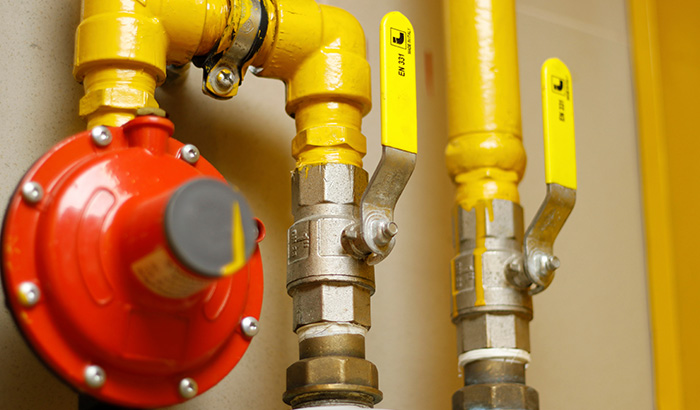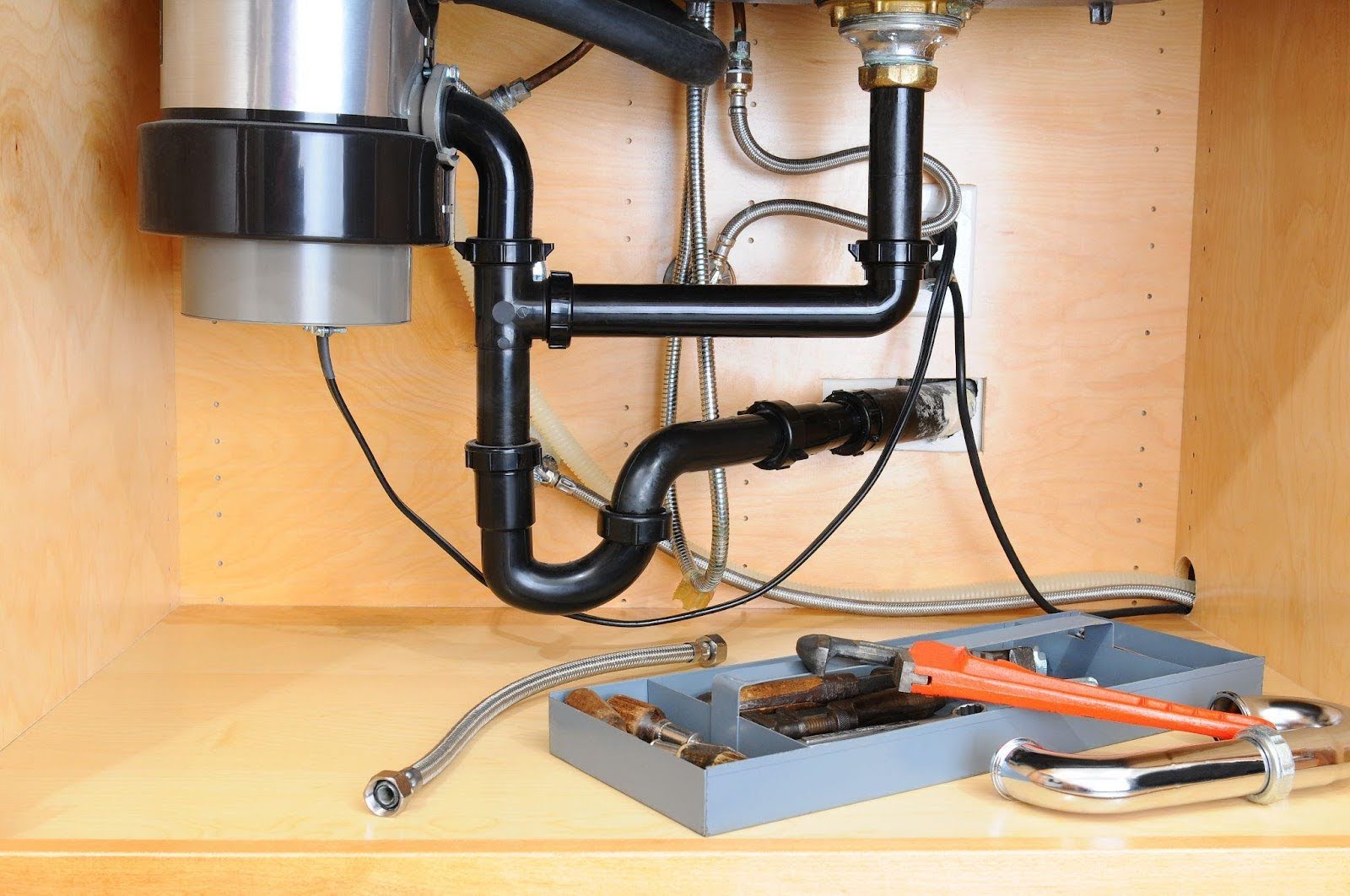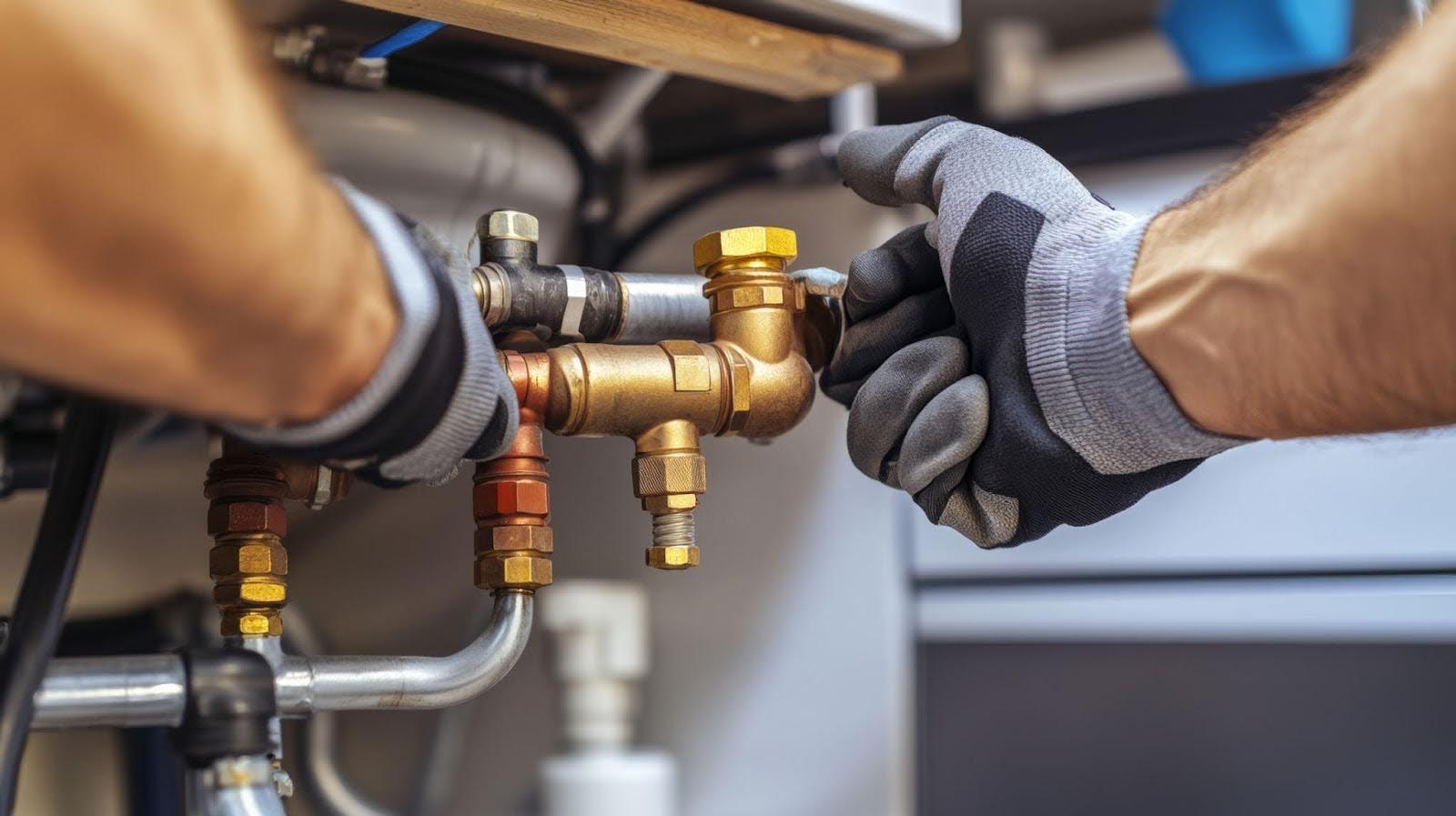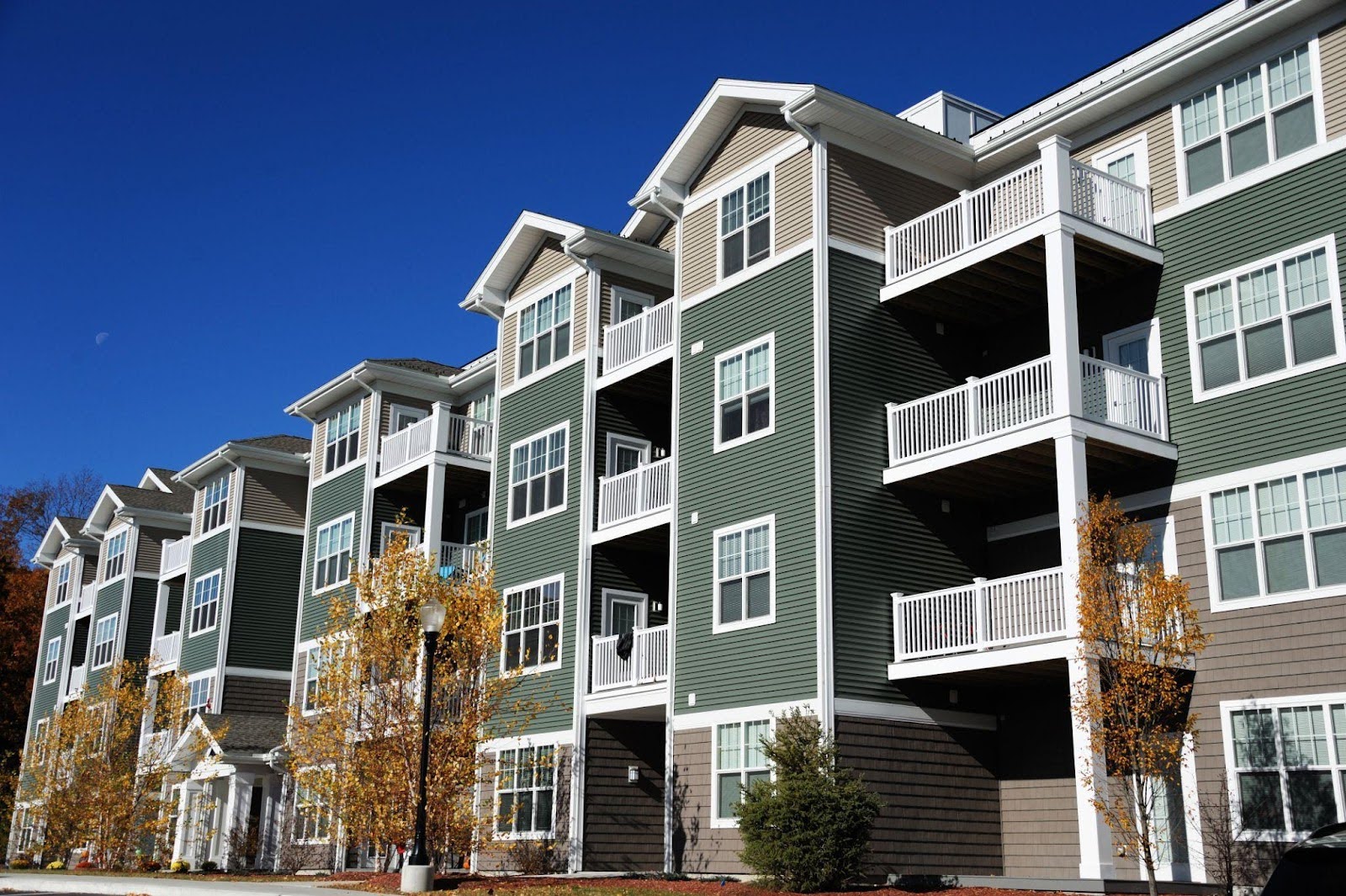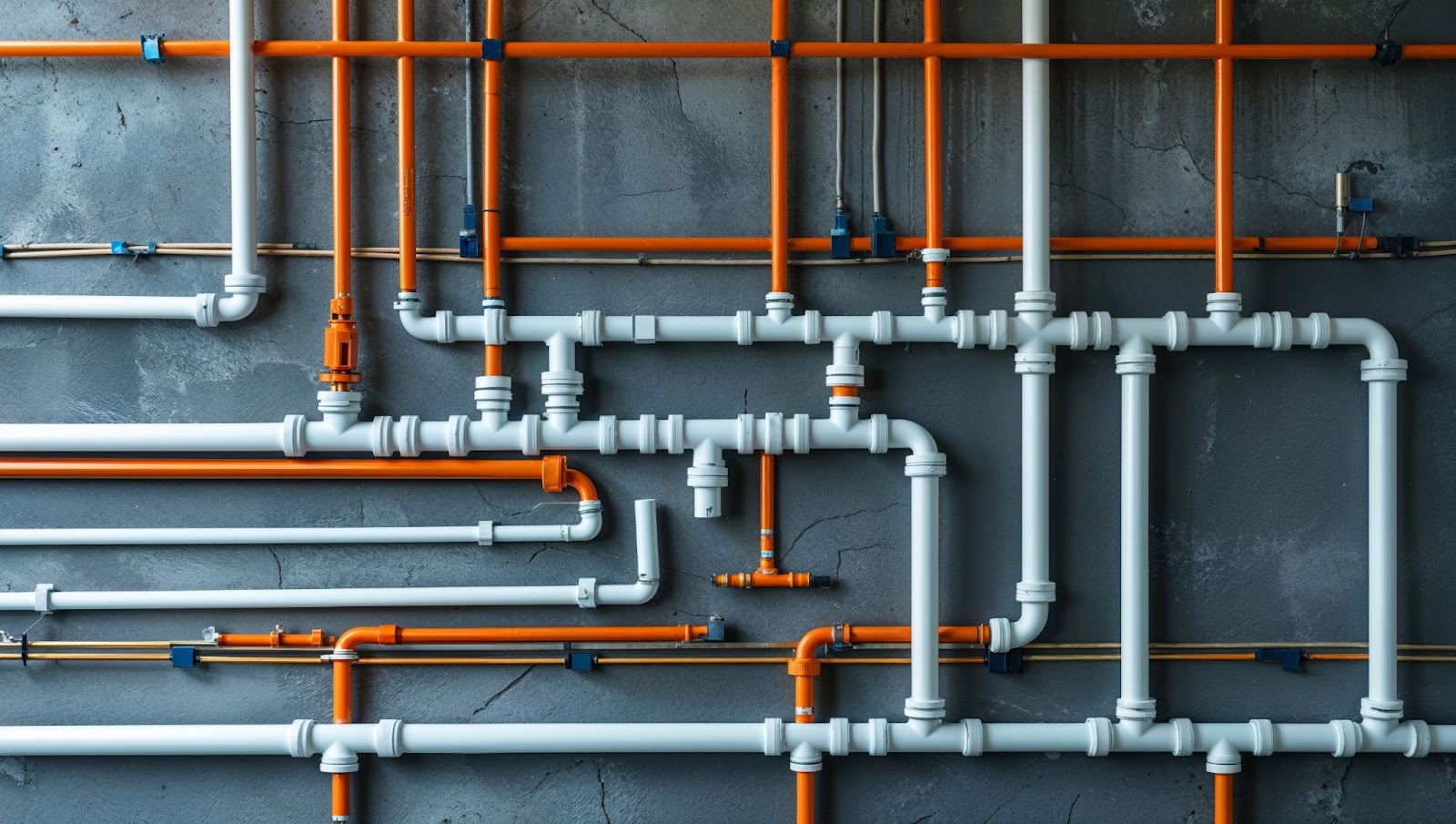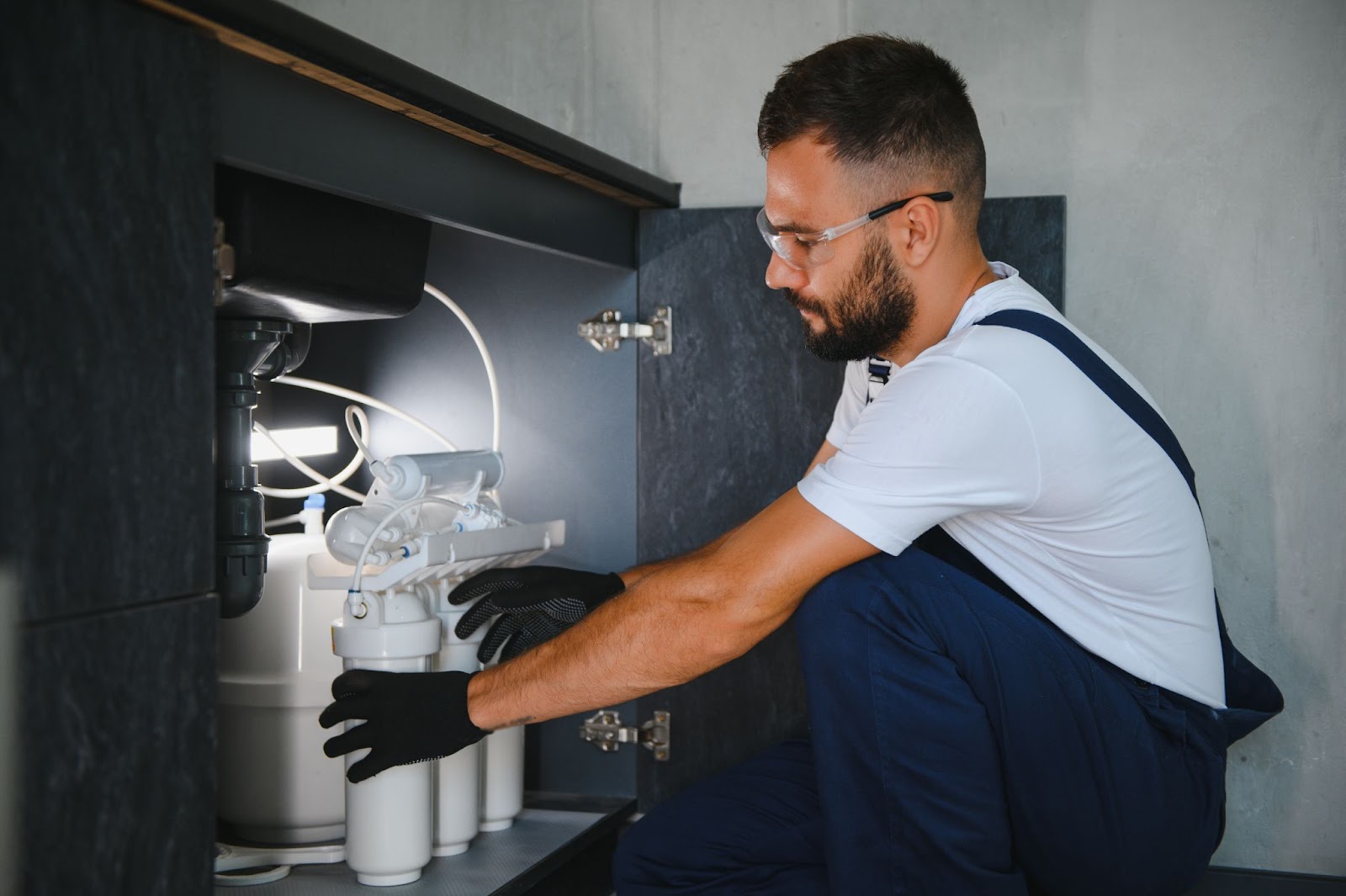Gas lines carry natural gas or propane from the main supply to the appliances in your home, such as your stove, water heater, and furnace. If there is a problem with your gas line, it can be highly dangerous or life-threatening. That’s why it’s important to know what to watch out for.
In this blog, we’ll discuss some of the most common warning signs that indicate a problem with your gas line. It’s important to address these issues as soon as possible to ensure the safety of you and your loved ones. If you notice any of these signs, don’t hesitate to contact a professional to inspect and fix your gas line.
Understanding how your gas line works
Gas lines are critical components in providing natural gas to residential and commercial properties, fueling appliances like stoves, ovens, water heaters, and furnaces.
These lines start from the main supply, typically laid by the utility company, and run underground to reach individual buildings. Once at the property, the main gas line branches off to supply various appliances through smaller lines.
The gas is maintained under pressure within the pipes, ensuring a steady flow towards the appliances. Before it reaches an appliance, the gas passes through a meter that measures usage for billing purposes. Safety mechanisms are integral to gas line systems, including shutoff valves that allow for the gas supply to be quickly cut off in case of an emergency or when repairs are necessary.
Regulators ensure the gas pressure is adjusted to a safe and usable level for household appliances, preventing damage to them and ensuring efficient operation.
In essence, gas lines are engineered with a focus on safety, efficiency, and reliability, using materials resistant to corrosion and leaks and ensuring a secure supply of gas to power essential home appliances.
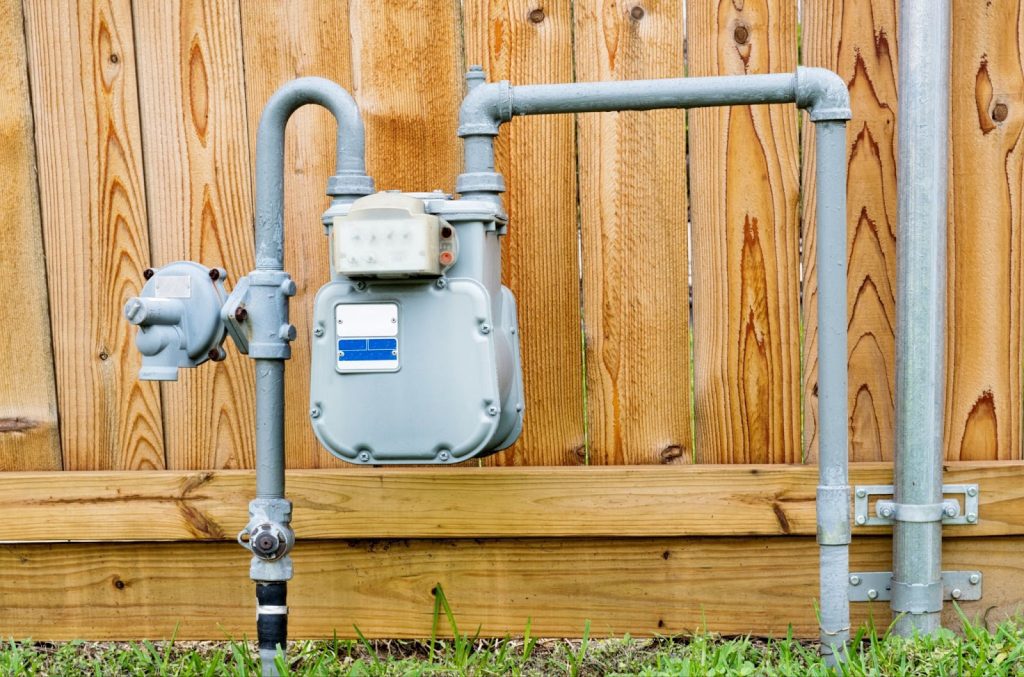
The risks of neglected gas lines
Gas leaks occur for a variety of reasons, including corroded or damaged pipes, loose fittings, and old or faulty appliances. When a gas leak occurs, it leads to dangerous levels of natural gas in your home, which is both highly flammable and harmful to inhale.
Inhaling natural gas leads to symptoms such as headaches, dizziness, nausea, and difficulty breathing. In severe cases, prolonged exposure to natural gas can even be fatal. In addition to the health risks, a gas leak might also lead to an explosion or fire, putting your home and the people inside at serious risk.
Another risk of neglected gas lines is the potential for carbon monoxide poisoning. When gas appliances are not properly maintained, they sometimes produce carbon monoxide, an odorless, colorless gas that is extremely toxic. Carbon monoxide poisoning leads to symptoms such as dizziness, confusion, nausea, and even death if not detected and treated promptly.
In addition to the immediate safety risks, neglected gas lines also lead to long-term damage to your home, including damage to your property, including corrosion of metal surfaces, staining of walls and ceilings, and damage to electronic equipment.
It’s important to note that gas leaks and carbon monoxide poisoning may occur without any obvious signs or symptoms, making it essential to have your gas lines regularly inspected and maintained by a qualified professional. However, there are some signs that may indicate a problem with your gas lines that should not be ignored. Let’s take a closer look at the signs that you need a gas line repair.
Sign #1: Unusual smell
One of the most common signs of a needed gas line repair is an unusual or strong smell. Natural gas itself is odorless, but gas companies add a chemical called mercaptan to give it a distinctive, sulfur-like smell. The smell of natural gas is often described as being similar to rotten eggs or sulfur.
If you notice this smell in your home or near your gas appliances, it might indicate a leak. Contact a professional to inspect your gas line and make any necessary repairs as soon as possible.

Sign #2: Hissing sounds
Gas lines should not make any noise, so if you hear a hissing sound, it could mean that there is a leak somewhere in the line.
In addition to the danger of a gas leak, a hissing sound could also indicate that your gas line is not functioning properly. If there is a blockage or some other issue in the line, it could cause the gas to flow in a way that creates a hissing sound. This could lead to inefficient gas flow and potentially even damage to your gas line.
If you hear a hissing sound coming from your gas line, it’s important to call a professional to come and inspect the line. They will be able to identify any potential issues and fix them before they become a larger problem.
Sign #3: Dead vegetation
When natural gas escapes from a gas line, it seeps into the soil and affects the plants and grass above it. If you notice an area of dead or discolored vegetation near your gas line, it could be a sign that there is a gas leak. This is especially true if the dead vegetation is in a specific area, rather than spread out across your yard.
Sign #4: High gas bills
When there is a leak in your gas line, more gas is being released than necessary, which will cause your bills to skyrocket. Even a small leak leads to a significant increase in your gas usage and subsequent bills.
Another common reason for high gas bills is inefficient equipment. If your gas line is not working properly, your appliances may be using more gas than they should, leading to higher bills.
Old or malfunctioning gas appliances also contribute to increased gas usage and bills. Having a professional inspect your gas line and appliances will help identify any inefficiencies and address them accordingly.
In some cases, high gas bills may be attributed to an outdated or damaged gas line. Over time, gas lines deteriorate, leading to leaks and other issues that drive up your gas usage and bills. If your gas line is old or has not been properly maintained, it may be contributing to your high gas bills.
Sign #5: Physical symptoms
One of the most alarming signs that your gas line needs to be fixed is when you start experiencing physical symptoms. The most common physical symptoms of a gas leak include headaches, nausea, dizziness, fatigue, and difficulty breathing. In more severe cases, exposure to a gas leak can lead to unconsciousness or even death.
These symptoms may be mild at first, but they will quickly escalate if the gas leak is not addressed. If you notice any of these symptoms in conjunction with any of the other signs mentioned earlier, it’s important to take action right away.
In addition to these symptoms, you may also notice that your indoor plants are wilting or dying. This is because the gas, usually methane, is displacing the oxygen in the area and suffocating the plants. If you start to see your plants looking sickly without any apparent reason, it’s a good idea to have your gas line checked.
Call Salisbury Plumbing today
If you’ve noticed any of the warning signs mentioned in our blog and think you might need a gas line repair, don’t wait for the situation to escalate. Gas line issues are not a mere inconvenience; they pose serious risks to your health and safety.
Salisbury Plumbing is equipped with the expertise and tools necessary to diagnose and fix any gas line problems promptly and effectively. Whether it’s an unusual smell, strange noises, or a sudden spike in your gas bill, our team is ready to provide the professional assistance you need.
Contact Salisbury Plumbing today to ensure your home remains safe and secure. Your peace of mind is worth the call.
toto slot

